5 Key Questions About Crossing Canadian Border by RV
I never expected to cross into Canada and explore that beautiful country with my home in tow. Just a few years ago, as I dreamed of visiting Banff National Park in Alberta, RVing wasn’t even on my mind. But today, I can talk to you about twice crossing the US-Canadian Border by RV.
Our first crossing was from Montana into Alberta in 2017 at the Carway, Alberta crossing station. We visited Banff, Calgary, and Vancouver, BC. The our second crossing in 2018 was from Maine into New Brunswick at the St Stephen, New Brunswick crossing station. We spent two weeks exploring Prince Edward Island and Nova Scotia with another full-time RV family.

Our time in Canada was well worth any effort it took to make those trips happen. But you might be surprised at how little effort is actually involved to explore this not-so-foreign country.
Now you need the details that will make your Canadian border crossing as smooth as possible. And that’s why I wrote this article.
**Please note that all information contained in this post is directed at U.S. citizens wishing to RV into Canada. If you are not a U.S. citizen, or are not traveling by land, this information may not be applicable to the specifics of your situation. You can obtain more general information for visitors to Canada at the Canadian Border Services Agency (CBSA) website.**
Here is our video of when we crossed the U.S. border into Canada. Watch it to see Justin Trudeau in all his Canadian glory.
Crossing the Canadian Border by RV: Top Questions and Answers
If you haven’t crossed the Canadian border by land recently, then the very first question in your mind (if you’re anything like us) likely has to do with passports. This is the top question that most potential visitors to Canada have, so we will tackle it first.
Are Passports Required to Visit Canada by RV?
You might hear slightly different answers to this question if you do a bit of searching. But the short answer is NO, passports are not an absolute requirement for U.S. citizens to enter Canada by land. (If you are entering via air or sea travel, it’s a different story. So do your research, please.)
Here’s an excerpt from a TripSavvy article about whether or not Americans need a passport to travel to Canada:
The Canadian government requires citizens of the United States to have a passport to fly to or transit through a Canadian airport, but not to enter Canada by land or by boat. For those travelers, in lieu of a passport, Canada requires that you carry proof of your citizenship, such as a birth certificate, certificate of citizenship or naturalization, or a Certificate of Indian Status, as well as photo identification.
Before we set out on our RV adventure, we applied for passports for all family members. Our two oldest kids already had them. We got passports to ensure our planned visit to Canada went as smoothly as possible. We also suspected that the border crossing might not be a one-time event.
For us, obtaining passports turned out to be the right decision and I have no regrets about it at all. Those documents helped both of our border crossings go very smoothly (both into Canada and back into the U.S.).
Consider Potential Costs of Not Obtaining Passports
At that time, the up front cost was $145 for each adult and $115 for each kid under 16. Despite the additional cost, I believe that it saved us plenty of time and hassle during our travels.
You also can’t overestimate the luxury of having a little extra peace of mind going into a situation like that. I am willing to pay up for peace of mind.
To view current fees and start the application process for a U.S. passport, visit the official site of the U.S. Department of State.
Choosing to Cross the Border Without a Passport
Now, if you choose not to go the U.S. passport route for your RV visit to Canada, be sure that the proof of citizenship documents you are using (mentioned in that TripSavvy article) are 100% “up to snuff”.
I don’t know about you, but I have run into issues in the past related to birth certificates not being exactly the kind that a government agency will accept (not a certified copy, no raised seal, etc.).
I imagine border crossing agencies, both Canadian and American, are rather particular on these points. So double and triple check everything to avoid a potential delay in your travel plans…not to mention a headache.
Keene’s Family Campground on the border of Maine and Canada
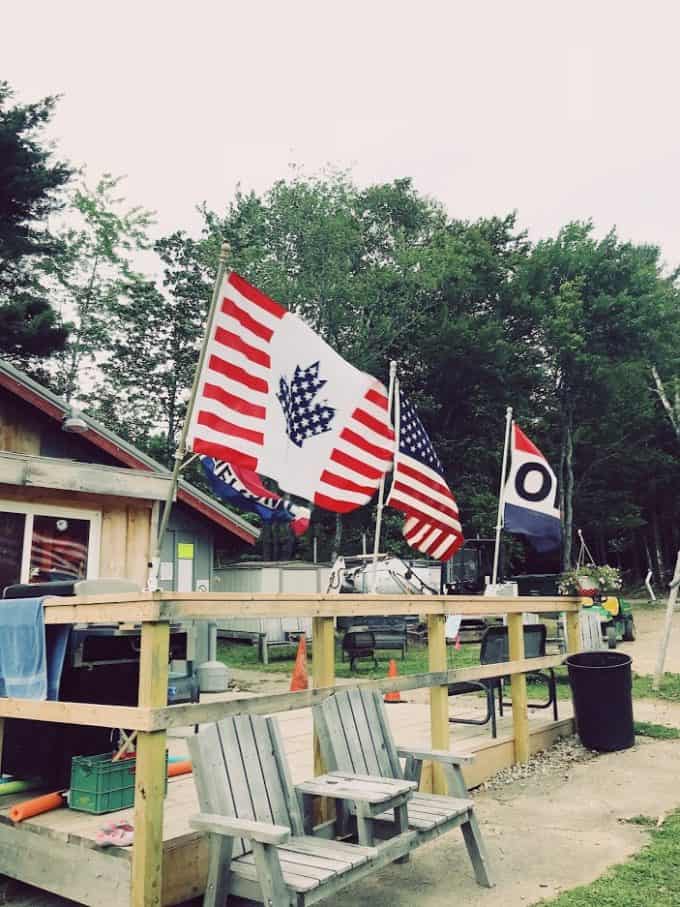
Can You Bring Alcohol Across Canadian Border?
Yes, I felt that alcohol was the second most important question to cover with you. But don’t read anything into that. I’m not judging you. Or me.
The best place to start in researching rules and limits on bringing alcohol or tobacco into Canada is at the CBSA “Bring Goods Across the Border” page.
Alcohol Limits When Crossing U.S. Border Into Canada
The quick answer is that you should not have any more than:
- two 750 mL bottles of wine
- OR one 40 oz bottle of liquor
- OR 24 12-oz cans of beer.
If you are carrying any quantity of alcohol that exceeds these limits, expect to run into snags. You will possibly have to pay a tax to cross with anything over these limits. I am not certain if they confiscate alcohol or if the tax is the worst-case scenario. Either way, try not to find out by testing the limits.
Can You Carry Foods Across the Border?
Well, the details involved in this question are far too much for me to try and reproduce (no pun intended) in this post. I highly recommend that you look at all the details provided on the CBSA site related to food, plant, animal and related products.
In our experience, based on the questions we were asked at our border crossings, they are not deeply concerned with many of the items listed there when they are dealing with an RV. If you came across in a semi truck, it might be a different story.
Beware of the Citrus
What we and other RVers have experienced is that border checkpoints seem mostly concerned with citrus fruits. We had to throw out some oranges at the border crossing point in St. Stephen, New Brunswick.
Other RVers have had similar experiences but decided to eat all of the citrus (oranges) in a hurry instead of tossing it out. Here is a very entertaining video with a section when a family crosses back into the U.S. from Canada. At the 1:07 mark, they hurriedly eat all their orange slices rather than toss them into the waste bin.
Bottom line: Ditch the citrus and you’re probably in the clear. But, as always, do your own research
Leave the Dead Finish Behind
I feel like I should also mention that you cannot bring more than 10 dead finfish that are not eviscerated into Canada. In case you’re into that sort of thing.
Do I Need Documentation For My Pet?
While we did not travel with a pet, it is extremely common for RVers to have pets along for the journey. Normally this does not cause any major headache or hassle related to a visit to Canada. You can see the details of the requirements at this USDA information page.
Here is the quick overview of the requirements related to common pets:
- Dogs over 8 months old require only a rabies vaccination certificate less than 3 years old. (If you have more than two dogs, additional requirements may apply.)
- Dogs under 8 months old MAY require a health certificate from a licensed U.S. veterinarian.
- Cats are NOT allowed. Just kidding! Similar to dogs over 8 months old, they only require a rabies vaccination certificate.
- Birds are a little different: You must have a USDA endorsed health certificate for any pet bird entering Canada.
- Chupacabras: Just don’t.
During our second visit to Canada, the friends we traveled with had a last-minute scare. They suddenly realized that the rabies certificate for their dog had expired. It just passed the 3-year mark. They had to scramble in the final days before crossing the border in order to get a new certificate in Maine. Of course, as luck would have it they were not asked for the certificate when crossing the border into Canada or into the U.S.
Can I Bring My Guns to Canada?
The short answer to this question is yes, you are allowed to bring firearms into Canada. I cannot speak from any personal experience on this subject as I have never owned a gun, but here is the most likely scenario that you should be prepared for when crossing with guns according to the Royal Canadian Mounted police website:
- PRIOR to arriving at the border, complete the Non-Resident Firearm Declaration form. (If you have more than three guns, you will need to use the continuation sheet just below that form.)
- DO NOT SIGN the form until you are in the presence of a CBSA customs officer.
- Pay a flat $25 fee, regardless of number of firearms.
- This approved form acts as a 60-day Canadian license for the gun owner.
There is a second option listed on the RCMP site (a 5 year Possession and Acquisition Licence), but it requires showing proof that you have completed a Canadian Firearms Safety Course. I’m guessing that’s not the case with you.

Additional Point to Consider For Border Crossing
Based on our experiences and the experiences of others we have spoken with or read about, the relative size of the border crossing station seems to make a significant difference in the experience you will have.
Generally speaking, it seems like the smaller stations are going to give you fewer hoops to jump through and less hassle overall. They seem to be more laid back.
Both of our crossings into Canada were at smaller stations. We spent a total of about 60 seconds at the first crossing and maybe 3-5 minutes at the second crossing when the officer entered our travel trailer and checked our refrigerator and storage bays.
I can’t make any promises about this obviously, but if you have options to cross at different check points, you may want to plan a crossing at the smaller stations.
Canadian adventure awaits! Make it happen.
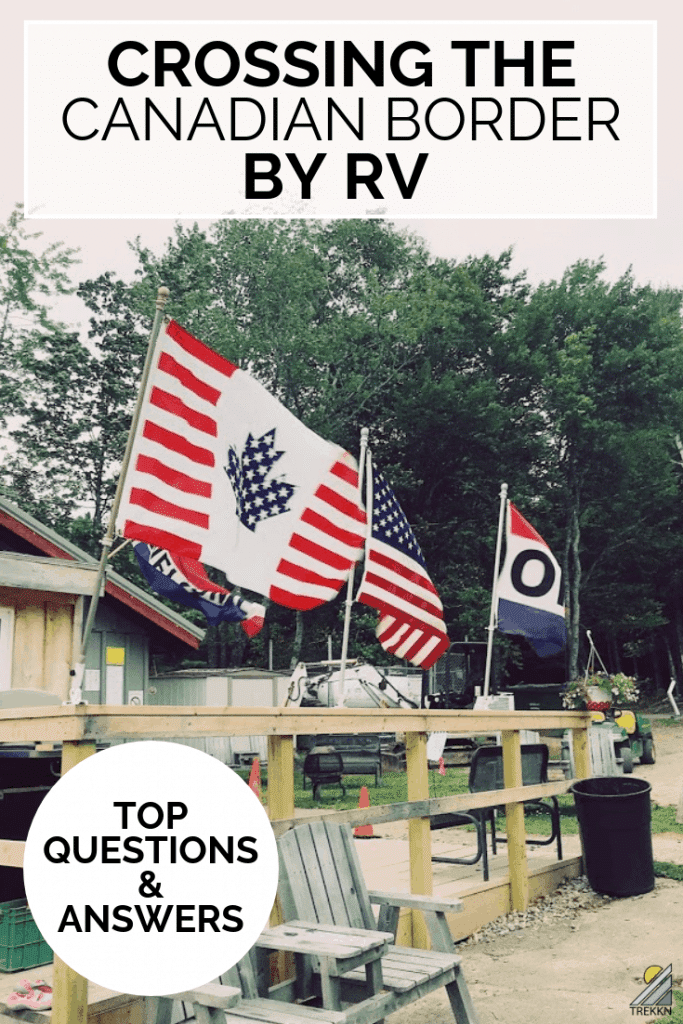

Todd loves a competitive game of table tennis, a breathtaking hike, and exploring new places. He lived and traveled in an RV with his family as they traveled throughout much of the US and parts of Canada. Todd has extensive knowledge about RV travel, safety, and accessories and has shared many of his stories here on TREKKN. When he’s not busy launching and building small businesses, you may find him staring at pictures of Glacier National Park (probably his favorite spot on earth).


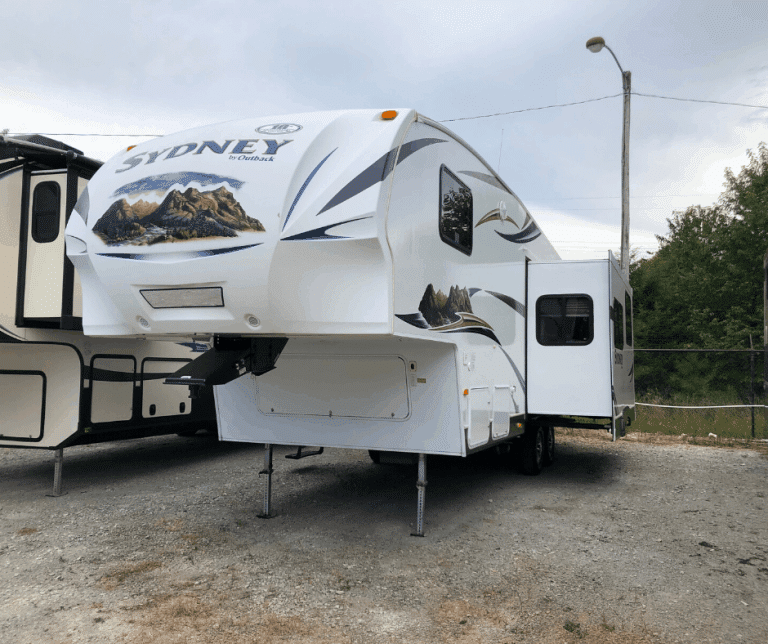
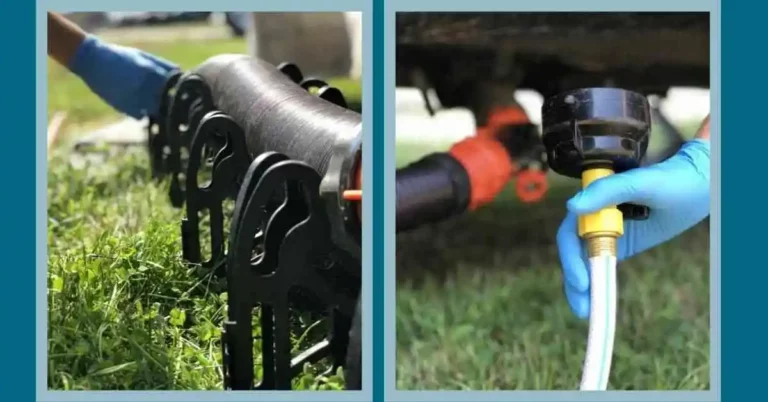
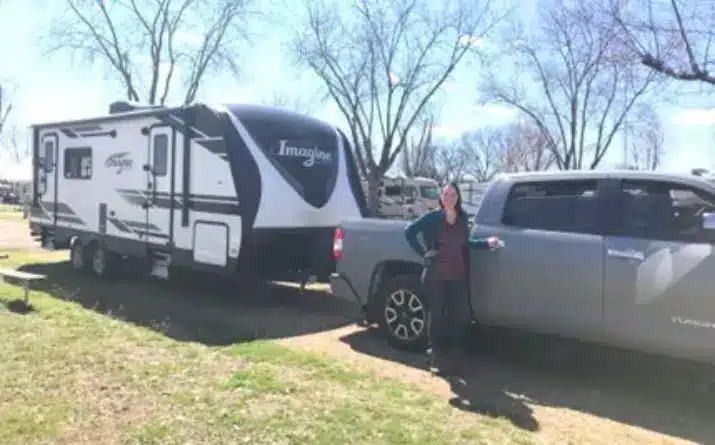

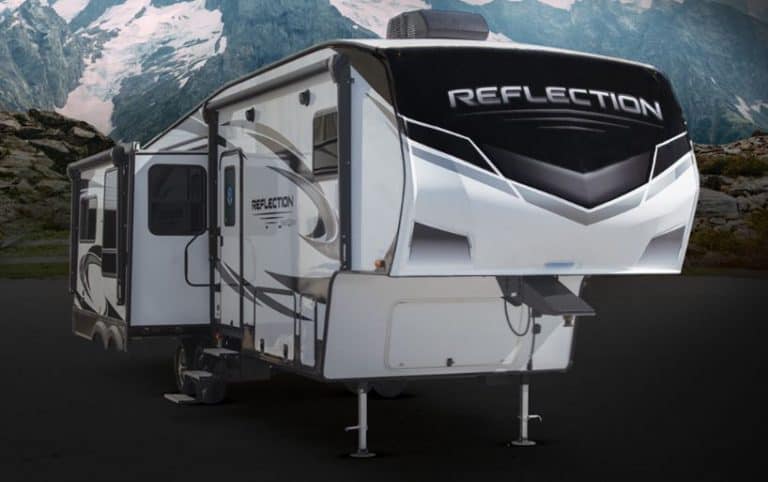
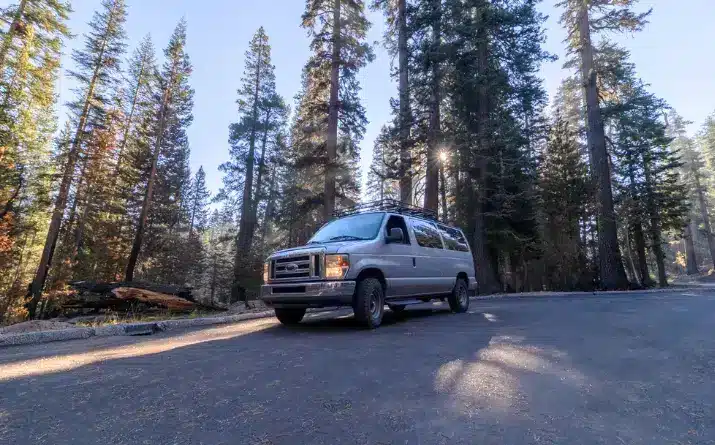
If i have payment for my travel trailer and pick up truck,I will have any problem to cross Canadian border if I have insurance and registration under my name?
Hi Alex,
You understand that I can’t guarantee anything, of course, but I think that having those documents available should help you avoid any problems and put your mind at ease. As I said in the article, they did not ask us for any documentation on the vehicles, just our passports.
Wishing you the best in your travels!
Todd
I asked the question what is the maximum length that an RV driving into Canada from the United States Can be? You answered every single question except the one I specifically asked.
Hi Anthony, thanks for your comment. The truth is that each province in Canada is going to have their own regulations and restrictions related to width, length and weight of RVs allowed to travel. So you are best off searching by provinces you plan to visit rather than for Canada as a whole.
As an example, I did come across an older document (2007) for the province of British Columbia that says max width for an RV is 8 ft 6 inches and max length for motorhomes is 45.93 ft and for towed RVs is 41 ft (max combination length is 65.6 ft).
https://cvse.ca/vehicle_inspections/PDF/MV3230.pdf
This was kind of a surprise to me because I know that many RVs here in the US do exceed those lengths (I’m thinking of the massive 5th wheels especially). So doing your homework ahead of time could definitely save you a lot of headache, as you are already aware.
I hope that helps just a bit…but I know it doesn’t give you a clean and simple answer. That just doesn’t exist here. 🙂
Happy travels, Anthony!